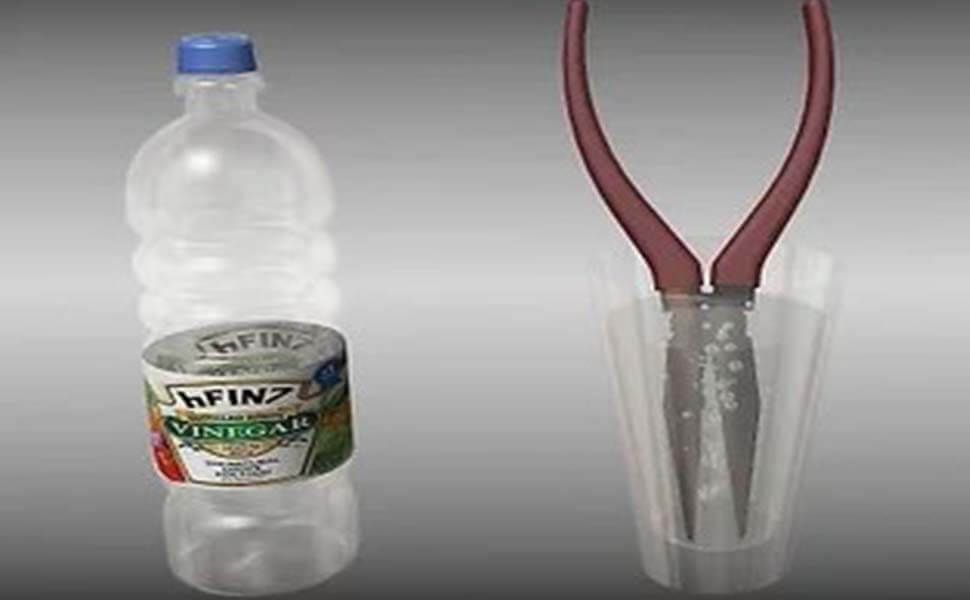Wondering how to remove rust from metal without expensive tools or endless scrubbing? You’re not alone—I’ve faced it too. The good news? There are simple, effective ways to get rid of rust using things you already have at home.
Contents
- How to Remove Rust from Metal
- 7 Best Ways to Remove Rust from Metal
- 1. White Vinegar Soak
- 2. Baking Soda Paste
- 3. Lemon Juice and Salt
- 4. Commercial Rust Remover
- 5. Rust Remover Spray
- 6. Steel Wool for Knives
- 7. Paint-Safe Removal
- More Methods –
- Frequently Asked Questions:
- 1. Can rust spread to other metals if not treated?
- 2. Is it safe to use rusted cookware or utensils?
- 3. Can rust damage be reversed completely?
- 4. Does painting over rust stop it?
- 5. What temperature or humidity causes metal to rust faster?
- 6. Are there eco-friendly rust removal options?
- 7. How often should metal surfaces be checked for rust?
- Wrapping Up:
How to Remove Rust from Metal
Let’s be honest—rust is annoying.
It makes your tools look old. It weakens metal. And worst of all, it spreads fast.
I’ve been there too. I once picked up my old bike from the shed and saw the frame full of orange flakes. Not a good day. But the good news? You don’t need fancy gear to fix it.
In fact, you can remove rust from metal at home—without damaging it.
We’ll walk through 7 easy methods. Each one is beginner-friendly.
Some use stuff you already have at home. Others use special products that work super fast.
So if you’re tired of guessing and just want a quick fix—keep reading.
Read more: When Must A Knife Be Cleaned And Sanitized
7 Best Ways to Remove Rust from Metal
Here are the best ways I’ve tested and found useful:
1. White Vinegar Soak
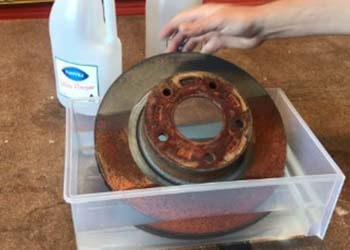
This is one of the easiest methods. Great for small to medium items.
Steps:
- Pour white vinegar into a bowl or container
- Soak the rusty item for 3–8 hours (depending on how rusty it is)
- Use a brush or steel wool to scrub the loosened rust
- Rinse with water and dry completely
This is also how you remove rust from large metal objects with vinegar—just soak rags in vinegar and wrap them around the rusted parts.
2. Baking Soda Paste
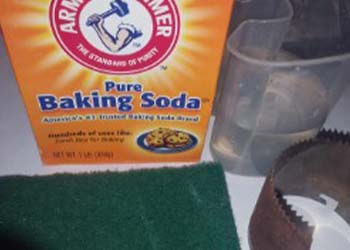
Works well for thin layers of rust on tools or steel surfaces.
Steps:
- Mix baking soda with water to form a thick paste
- Spread it on the rusty area
- Let it sit for 1 hour
- Scrub with a toothbrush or pad
- Rinse and dry
This is a go-to when you wonder how to remove rust from large metal objects with baking soda.
3. Lemon Juice and Salt
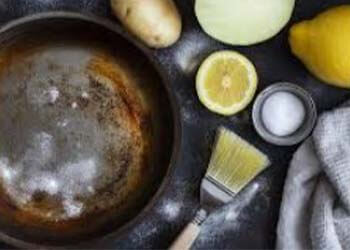
Natural and safe. Good for lighter rust jobs.
Steps:
- Sprinkle salt over the rust
- Squeeze lemon juice on top
- Let it sit for 2–3 hours
- Scrub gently
- Rinse and dry
A great option for anyone asking what is the best homemade rust remover for metal.
4. Commercial Rust Remover
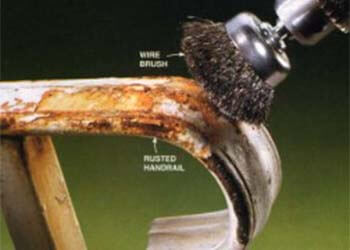
These are made to work fast. Ideal for heavy rust.
Steps:
- Buy a trusted rust remover product
- Follow the instructions on the label
- Wear gloves when applying
- Let it sit, then scrub and rinse
It’s a great pick if you’re searching for what removes rust quickly?
5. Rust Remover Spray
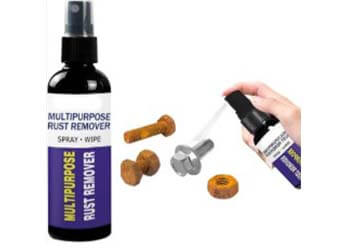
If the rust is hard to reach or on a big surface, spray works better.
Steps:
- Shake the rust remover spray
- Spray evenly on rusty areas
- Wait 10–20 minutes
- Wipe clean with a cloth or brush
- Rinse if needed and dry
Some people ask, what is the strongest rust remover?—Sprays often rank high.
6. Steel Wool for Knives
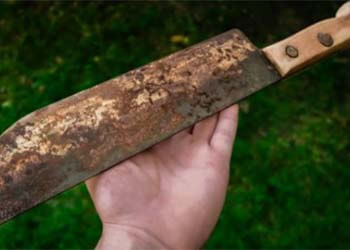
Perfect for kitchen tools or small blades.
Steps:
- Wet the knife slightly
- Rub with steel wool or a wire brush
- Wipe off rust and clean with soap
- Dry with a towel
This is exactly how to clean rust off a knife without chemicals.
7. Paint-Safe Removal
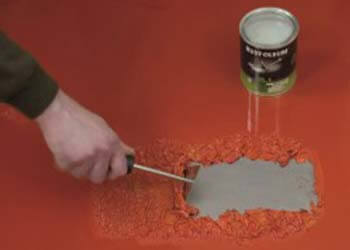
Trying to clean a painted surface? Be gentle. Let’s now use the paint-safe removal.
Steps:
- Use a soft cloth with white vinegar
- Dab the rusty area—don’t scrub too hard
- Rinse gently and dry
This works best when figuring out how to remove rust from painted metal.
There you have it—a full guide to restoring rusty metal, from small knives to painted surfaces to steel roofs.
More Methods –

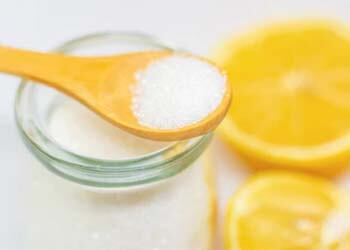
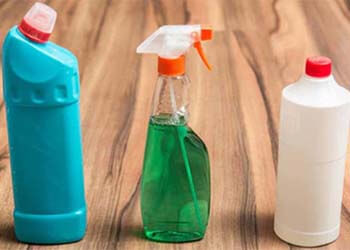
If you’re still thinking, what removes rust permanently,
The answer is:
regular maintenance.
Once cleaned, protect the metal by painting, sealing, or keeping it dry.
Rust doesn’t stand a chance when you’re ready.
But what if you’re dealing with larger metal items?
Let’s say it’s a gate, a car part, or a metal shelf. In that case, the question becomes: how to remove rust from large metal objects without spending all day scrubbing? The trick is to use soaking methods, vinegar wraps, or sprays that stay on longer.
Here’s a simple step-by-step approach that works:
Steps:
- Clean the surface with a dry cloth to remove loose dirt
- Soak rags in vinegar or spray rust remover directly
- Wrap the soaked rags around rusty spots or cover with plastic to hold moisture
- Let it sit for 6–8 hours (overnight works great)
- Remove wraps and scrub gently with a soft brush
- Rinse with water and dry fully
You want something that works while you relax. This lets the remover break down rust on its own, saving your energy for the final wipe-down.
Still, you might ask—how to remove heavy rust that’s been there for years?
Heavy rust means you’ll need a bit more patience and elbow grease. But it’s totally doable with the right steps.
Steps:
- Use sandpaper or a wire brush to break the top flaky layer
- Soak the metal in vinegar overnight (or apply vinegar-soaked cloths)
- Scrub the softened rust with a stiff brush
- Repeat if needed
- Rinse and dry well
- Apply oil or rust-resistant paint to prevent it coming back
Once you break the surface layer, the deeper rust becomes much easier to clean.
For delicate surfaces, it’s important to know how to remove rust from metal without scratching.
You don’t want to damage the finish. So go gentle.
Steps:
- Mix baking soda and water into a paste
- Apply gently using a sponge or microfiber cloth
- Let it sit for 30–60 minutes
- Wipe in circles—don’t scrub
- Rinse with clean water and dry
This way, you clean the rust without harming the look or texture of the surface.
If the rust has formed on a steel item, you might be wondering: how to remove rust from steel specifically?
Steel is strong, but it still needs care when cleaning. Here’s a beginner-friendly way:
Steps:
- Dip a cloth in white vinegar and rub it on the rust
- Let it sit for an hour
- Use a toothbrush or steel brush to remove the rust
- Wash the surface with soap and water
- Dry it with a soft towel
Steel often rusts from moisture—so keeping it dry afterward is key.
And what if it’s up on your roof?
Yes, rust finds its way there too. So let’s cover what is the fastest way to remove rust from metal roof.
This one’s all about safety and speed.
Steps:
- Sweep or rinse loose debris from the roof
- Spray a rust remover product on the rust spots
- Let it sit 15–20 minutes
- Scrub lightly with a long-handled brush
- Rinse with a hose and let it dry in sunlight
Always use gloves, non-slip shoes, and a safety rope if climbing up.
Want a shortcut?
You might ask, what is the fastest way to remove rust from metal with vinegar?
Yes, vinegar can be even quicker when warmed up.
Steps:
- Heat white vinegar (not boiling, just warm)
- Soak a cloth in it
- Press the cloth onto the rust and let it sit 30–60 minutes
- Wipe and rinse
- Repeat if needed
Warm vinegar speeds up the rust-breaking process, saving hours.
And lastly, if you’ve ever seen people talk about odd tricks online and wondered, how do you remove rust without damaging it Reddit-style—some do swear by household hacks.
Some Reddit-style methods include:
- Rubbing aluminum foil dipped in water
- Pouring cola over the rust and scrubbing gently
- Using a cut potato with dish soap for small spots
These work for light rust—but always test a small area first.
Anyway, if you’re still thinking, what removes rust permanently?
The answer is simple:
- Clean it,
- Dry it,
- And protect it.
Use a sealant or paint if needed. That’s how you stop rust for good. Learn more.
Frequently Asked Questions:
1. Can rust spread to other metals if not treated?
Yes, rust can spread to nearby metal surfaces if moisture and oxygen are present, especially on iron or steel.
2. Is it safe to use rusted cookware or utensils?
No, rust can flake off and contaminate food, which isn’t safe—clean or replace rusted kitchen items promptly. Read more.
3. Can rust damage be reversed completely?
Surface rust can often be removed entirely, but deep rust may leave permanent pits or weaken the structure.
4. Does painting over rust stop it?
Not really—painting over rust without removal traps moisture and can make the rust worse over time.
5. What temperature or humidity causes metal to rust faster?
Humidity above 60% and temperatures between 40°F to 100°F accelerate rust, especially with poor ventilation.
6. Are there eco-friendly rust removal options?
Yes—white vinegar, lemon juice, and baking soda are all effective, non-toxic ways to remove rust naturally.
7. How often should metal surfaces be checked for rust?
Check every 3–6 months, especially in damp areas, to catch early rust before it spreads or worsens.
Wrapping Up:
How to remove rust from metal doesn’t have to feel like a tough job. With the right tools and methods, anyone can do it at home. From quick fixes to deep cleaning, there’s a solution for every level of rust. Just pick the method that fits—and bring your metal back to life.
Read more:
Image Credit:

